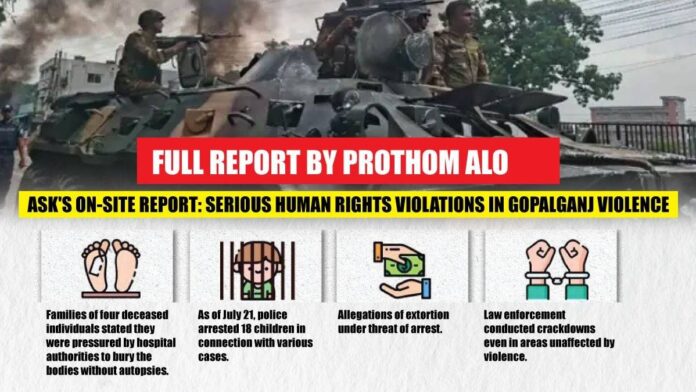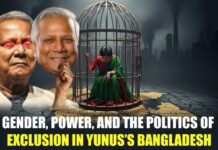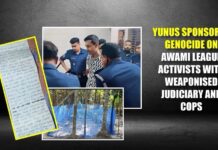Serious Human Rights Violations in Gopalganj Violence
- Families of four deceased individuals stated they were pressured by hospital authorities to bury the bodies without autopsies.
- As of July 21, police arrested 18 children in connection with various cases.
- Allegations of extortion under threat of arrest.
- Law enforcement conducted crackdowns even in areas unaffected by violence.
In response to the July 16 attack on the National Citizen Party (NCP) rally by local Awami League members and affiliates in Gopalganj, human rights organization Ain o Salish Kendra (ASK) conducted a two-day fact-finding mission and has reported serious human rights violations. ASK said that the attacks on a political assembly infringed on citizens’ right to freedom of expression and peaceful assembly and demanded an impartial investigation.
Between July 21 and 22, a four-member ASK team visited Gopalganj to gather information. They interviewed families of the deceased, injured, arrested individuals, local citizens, professionals, prison and hospital authorities, and law enforcement officials. On Friday, ASK shared its findings with the media.
According to ASK’s report:
“The violence in Gopalganj constitutes a grave violation of human rights. The July 16 attack on a political gathering severely undermined citizens’ right to assemble. We demand a fair and impartial investigation.”
Sequence of Events:
Witnesses informed ASK that a small NCP delegation arrived at the rally and made provocative remarks against Bangabandhu Sheikh Mujibur Rahman and the Awami League. This led to tension and a violent three-hour clash ensued, involving so-called “common citizens.”
From the morning of July 16, local Awami League activists were reportedly stationed at key points across the city, armed with sticks and local weapons. Curfew and Section 144 were enforced that night, followed by indiscriminate arrests. Some people reported being extorted under the threat of detention. Many fled their homes. Even areas that had no unrest saw arbitrary police raids, creating an atmosphere of fear.
Autopsy Concerns:
ASK confirmed that among five deceased, only Ramzan Munshi—who died during treatment in Dhaka—underwent a post-mortem, which revealed bullet wounds.
The family of Imon Talukder stated that they were pressured by hospital authorities around 5 PM to bury the body quickly without an autopsy. His body bore bullet wounds and signs of blunt trauma. Imon wasn’t politically involved; he worked in a crockery store.
The families of Ramzan Kazi, Dipto Saha, and Sohel Mollah also reported being urged to collect the bodies promptly, preventing autopsies. On July 20, after media coverage, police informed the families (excluding Dipto Saha’s) that bodies would be exhumed for post-mortem on July 21. ASK representatives witnessed the exhumation and considered it another form of harassment. Families demanded proper justice.
Legal Proceedings:
As of July 21, eight cases were filed. ASK accessed six case documents, revealing a total of 5,400 accused, with 358 named individuals. Among them were 3 women and 32 from the Hindu minority.
Three of these cases were filed under the Anti-Terrorism Act, two under criminal law, and one under the Special Powers Act.
Eighteen children were arrested, some under the Anti-Terrorism Act (2009). Families claimed the children had no involvement in the clashes.
Hospital Report:
A total of 24 people were treated in Gopalganj General Hospital’s emergency unit on July 16. Among them:
21 civilians,
2 police officers,
1 driver of the Gopalganj Sadar UNO.
None of the three official personnel had gunshot wounds.
Three civilians were referred to Dhaka Medical College for further treatment.
Four bodies were brought dead to the hospital. In Dipto Saha’s case, although declared dead-on-arrival, ASK questioned the accuracy of that claim.
Police and Military Response:
The Gopalganj Superintendent of Police (SP) told ASK that the police exercised maximum restraint and did not use lethal weapons. The attackers tried to block roads from early morning, prompting the need to escort NCP leaders to the SP’s office for safety.
Two army APCs were deployed at the SP office. Law enforcement was focused on restoring order.
By July 20, 177 individuals had been arrested and sent to court. While eight cases were filed, no case had been filed yet for the attacks on prison or government property — but the prison authorities were preparing to file one.
ASK also reported that the Officer-in-Charge (OC) of Gopalganj Sadar Police Station behaved rudely with its fact-finding team. Despite efforts, ASK was unable to meet with the military officials deployed in the area.




